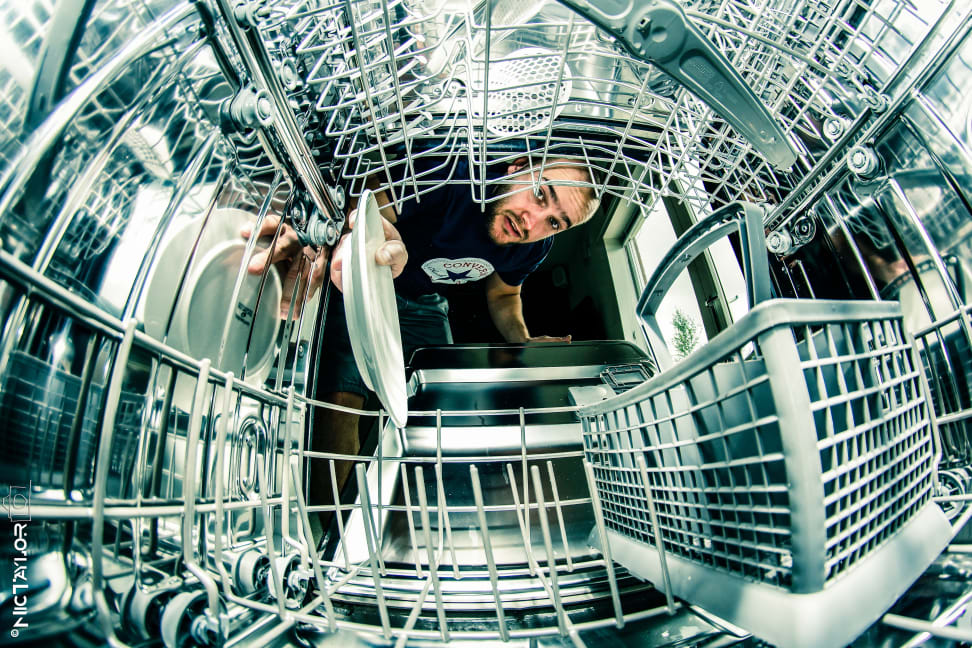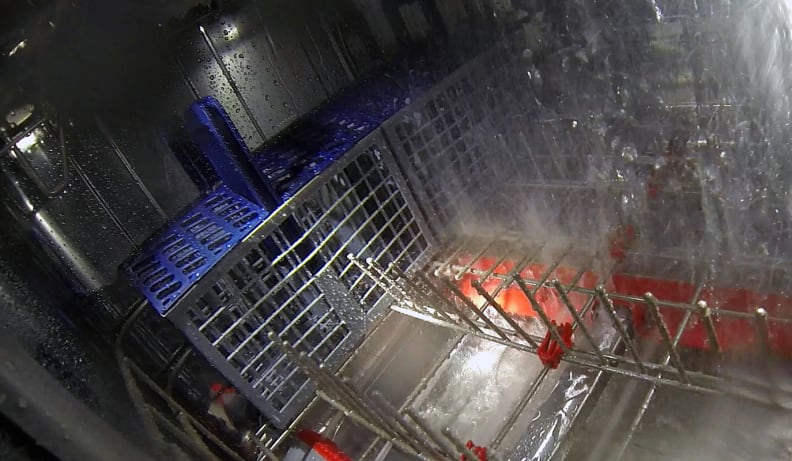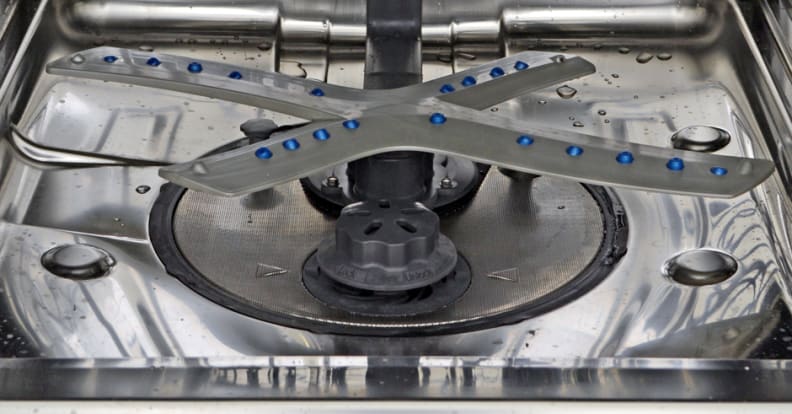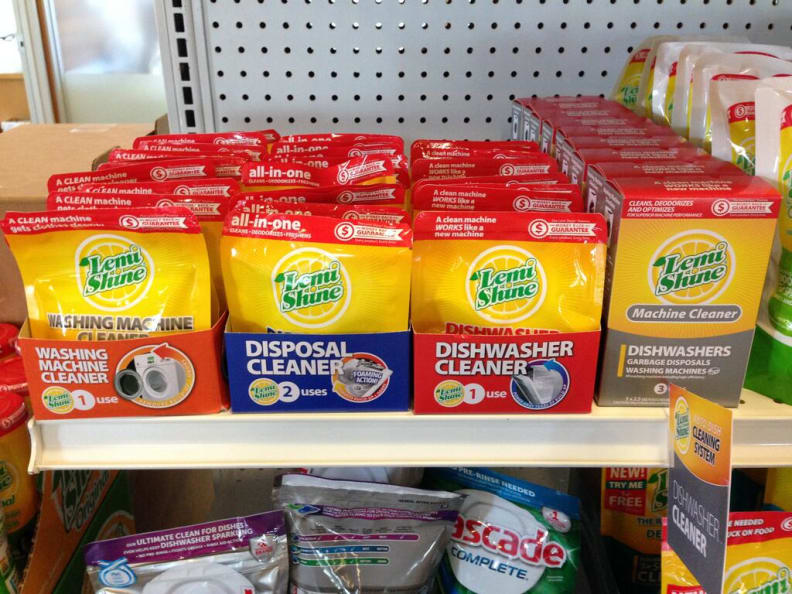How Hard Water Hurts Your Dishwasher
Know the signs and save your dishwasher from destruction.
 Credit:
Flickr user "n1ct4yl0r"
Credit:
Flickr user "n1ct4yl0r"
Products are chosen independently by our editors. Purchases made through our links may earn us a commission.
Depending on what the water supply is like where you live, you may have "hard water," meaning it's more mineral rich than pure water.
You'll probably notice it first in the shower, where you'll have a hard time getting your soap to make suds. But what you might not know is that, over time, hard water can hurt your dishwasher's performance—and even damage it—resulting in a visit from the repairman and expensive bills.
Luckily, it's easy to prevent mineral buildup from hard water. You should already be cleaning your dishwasher, but not all cleaning methods will remove hard water deposits. Below you'll find everything you need to know about hard water and how you can fight back.
What exactly is hard water?

Hard water happens when ground water picks up minerals as it flows through rock and dirt. It most commonly picks up salts like magnesium chloride and calcium chloride.
{{amazon name="Cascade Extra Action Dishwasher Detergent (115 Action Packs)", asin="B00VS1GQZI", align="right"}} The "hardness" of your water can vary drastically. According to HowStuffWorks, the water industry measures water hardness in grains per gallon (GPG), with one grain being 64.8 milligrams of calcium carbonate.
If water has between 3.5 and 7 GPG, it's "moderately hard." If it has 7 to 10.5 GPG, it's "hard water." Anything above that is "very hard," while soft water is 1 GPG or less.
Even if you have very hard water, these salts are still only trace amounts in your water—no problem for drinking. Problems only occur when the salt starts to build up on surfaces, from your dishes to your dishwasher and its internals.
What does hard water do to my dishwasher?

The most visible (and annoying) effect of hard water is actually on your dishes. The cloudy white residue left on your glasses and silverware is actually from those pesky salts, which are left behind when the water evaporates from your dishes.
But mineral salts aren't just on your dishes; they also build up on every surface of your dishwasher. Given the amount of metal inside the average dishwasher, those salts can lead to rust and the eventual failure of expensive parts like pumps and heating elements.
How do you fight hard water?

There are a number of ways to both remove and prevent hard water deposits. If you know you have hard water, you should first focus on removing buildup from your dishwasher.
{{amazon name="Lemi Shine Machine Cleaner 2.5 oz, 3 Count", asin="B002IT3D78", align="right"}} Since most buildup is chemically basic, you need to use an acid to remove it. Perhaps the simplest way is to put vinegar or citric acid in your rinse aid compartment. There are also dishwasher cleaners like Lemi Shine that will achieve the same goal.
As for prevention, there are a handful of different approaches. The easiest solution is to start using a dishwasher detergent with a water softener, like some Cascade detergents.
You could also start using a rinse aid, which doesn't address the hard water issue but makes your dishwasher and dishes hydrophobic. The deposit-laden water will just drain away instead of clinging to your stuff.
{{amazon name="Finish Jet Dry Rinse Aid, Dishwasher Rinse Agent, 16 Ounce", asin="B004OB3FP8", align="right"}} Then there are more permanent solutions. You could replace your current dishwasher with one that has a built-in water softener. Or you could go a step further and install a water softener for your home's entire plumbing system.
These devices work by passing water through beads that remove the salt ions, thereby turning hard water soft. Water softener maker Kinetico notes that these devices must eventually be cleaned—with salt, of all things—so that they can continue to soften your water. However, most machines with built-in softeners perform this cleaning automatically.


